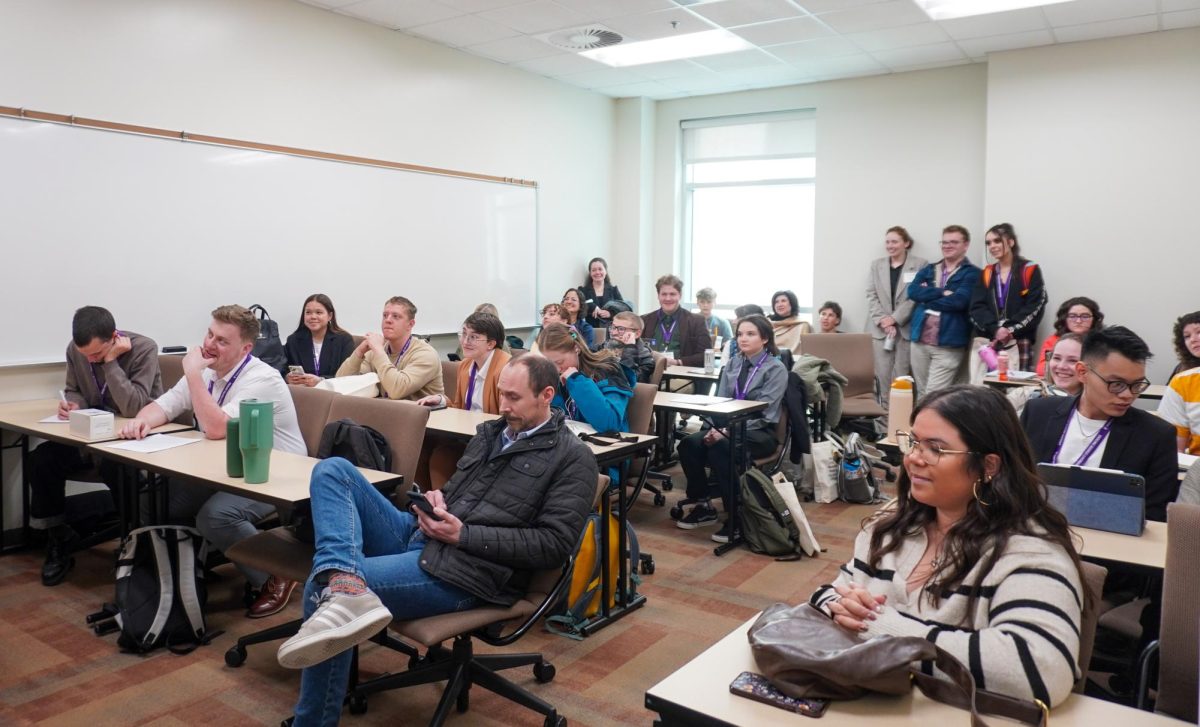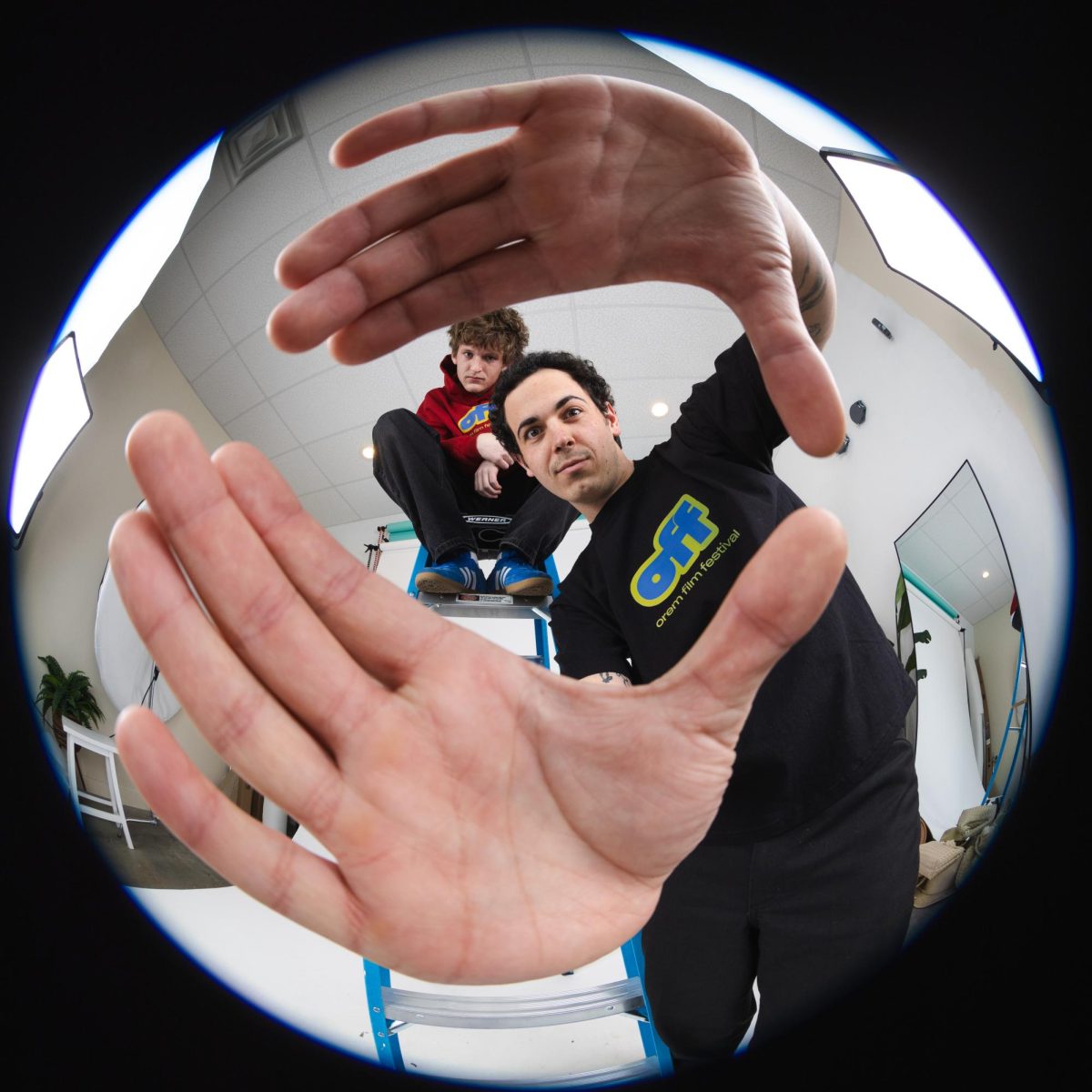The Weber State University Symphonic Band fall concert took audience members on a musical trip to Tolkien’s Middle Earth, the DeLorean from “Back to the Future” and to the beaches of Normandy on D-Day.
WSU music professor and conductor Samuel Bryson wanted attendees and band members to feel lively.
Held on Nov. 5—a date that is central to the plot of “Back to the Future”—concertgoers were treated to a familiar sound: Alan Silvestri’s classic “Back to the Future” theme.
Attendees also listened to the movements “Gandalf” and “Hobbits.” This was not the familiar music from the Peter Jackson and Howard Shore interpretation of Middle Earth. The music was instead from Johan de Meij’s musical interpretation of “The Lord of the Rings.”
“I am a movie geek,” Bryson said while addressing the audience. “‘Back to the Future’ has been really fun for me to do. Great movie soundtracks have also inspired many young people to pursue music as a career.”

The concert then shifted to a tone of remembrance and reverence. With Veterans Day approaching, Bryson wanted to do something special to commemorate the armed forces. The band played “The Dam Busters March” from the 1955 British war film “The Dam Busters,” which gives tribute to the pilots of the RAF 617 Squadron who participated in Operation Chastise.
The mission involved flying behind enemy lines to bomb strategic dams in Nazi Germany. Operation Chastise was a resounding success for the Allies, but at the cost of many lives.
Just as “The Dam Busters March” took the audience to the skies of World War II, James Barnes’ tone poem “Lonely Beach” took the audience to the forlorn beaches of Normandy on D-Day.
In the written forward to the tone poem, Barnes explained he received inspiration for the piece while watching film footage of American troops disembarking from a landing craft under intense machine gun fire.
“One soldier runs out … then two more,” Barnes wrote. “The fourth soldier gets perhaps 15 yards before he is hit and falls. Who was this soldier? Who were his parents? Was he married; did he have children? He lies on a beach with thousands of men around him, but he dies alone.”
For the piece, 10 student musicians left the stage to take up positions around the audience. The piece began with horn players blowing toneless air through their instruments to eerily mimic the sound of the waves of the cold English Channel on that fateful morning.
The off-stage trumpeters and percussionists began to interrupt, mimicking the sound of machine gun fire and explosions and immersing the auditorium with the simulated terror and chaos of war.
An abrupt silence then filled the auditorium as the signal for the moment when the bullet strikes the soldier. After the moment of silence, the music harmoniously swelled, honoring the sacrifice of the soldiers who perished. The song then ended as it began, with the sound of the waves.
“The ageless constancy of the wind and the waves reminds us of man’s comparative insignificance in relation to the world around him,” Barnes wrote.
“Lonely Beach” moved several in the audience to tears. After conducting the piece, Bryson invited the audience to observe a moment of silence for fallen veterans and then invited veterans in the audience to stand.

As a nod to the idea that dark times must pass, Bryson concluded the concert with “Amazing Grace” and “The Hounds of Spring.”
Eliaz Sanchez, a Latinx WSU music education student who plays clarinet for the symphonic band, enjoyed playing “The Hounds of Spring.”
“It brings a lot of joy into a performance,” Sanchez said. “It is really technical, and for a musician, it is a lot of fun. Sam does a great job with the band. I want to direct bands. I want to teach music.”




















